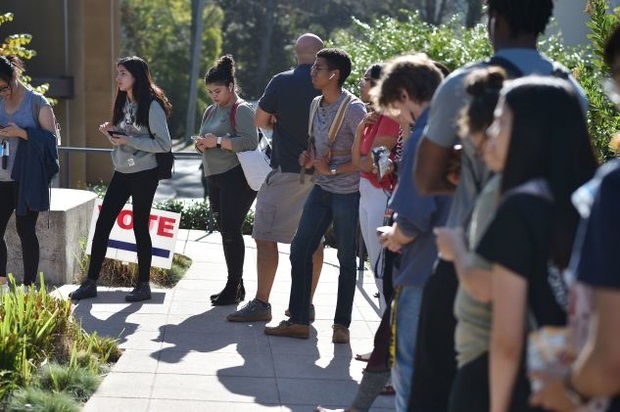College Accreditation Red Tape Priority for New Education Rules
- Complaints of costs fuel pressure to revamp regulations
- Busting Nov. 1 deadline could kick changes to 2020 victor
A senior Education Department official is making it a top priority to finish regulations on accreditor and college approval by a crucial Nov. 1 deadline, one the department has missed before.
Negotiations on a full plate of regulations start this week with talks on accreditation, standards for colleges, innovation, grants for teachers, distance learning, and religious schools. The wide range of topics raised concerns among colleges, accrediting agencies, financial aid administrators and legal groups about the department being able to deliver.
The proposed regulations might ultimately result in several different rules, the department says. The one section most critical to get done is making it easier for colleges to get approved by accrediting agencies and for those agencies to be recognized by the department, said Diane Auer Jones, the principal deputy undersecretary overseeing the rulemaking.

“If we can’t change accreditation then everything else gets held up, including the cost,” she said in a wide-ranging interview with Bloomberg Government. “I cannot tell you how many presidents come into this office or call me on the phone and say ‘Diane, it costs as much for us to be accredited for our 1,000 students as the University of Michigan spends to be accredited for its 50,000 – we can’t survive another accreditor review.’”
Other changes, such as those dealing with innovation, could be a part of a later rule, she said.
The soonest a rule could go into effect is July 1, 2020, which happens only if the department makes the rule final by Nov. 1. Last year, the department missed the deadline for wrapping up two regulations, due in part to a lack of staffing.
If department officials miss the deadline, they run the risk of another administration taking over in 2021 and halting the regulations before they can be put in place.
Proposed Changes
The department has proposed numerous changes for accreditors, the gatekeepers for $120 billion in annual federal student aid. They include allowing colleges to make major revisions to their programs without getting pre-approval from their accreditors and eliminating a two-year requirement for accrediting agencies before they get Education Department recognition.
Jones expressed confidence the accreditation section of the regulation can gain consensus among the groups set to meet Tuesday to hash out how the regulation should look.
“We don’t have that much flexibility in those regs because a lot of it is dictated by statute,” she said. “It’s not like we can start from a blank slate.”
On controversies, such as whether the department should define what a “credit hour” is, Jones said the group could come to consensus on different standards for various types of programs – for example, on-campus, online and a potential subscription model that would allow students more flexibility to complete classes within a certain time period.
Failure to reach consensus would prompt the department to focus on writing its own rule on accreditor standards, Jones said.
Accreditors also could see fewer requirements for overseeing colleges under a revised handbook. The department is working to streamline the 88-page guide and expects to release the updated handbook in the coming months, Jones said.
Borrower Defense
Also at stake before the Nov. 1 deadline: Another proposed rule on when students can get their federal loans forgiven if they were misled or defrauded.
The department proposed a rule in July 2018, but will have to offer a new rule this year after a court required a 2016 version of the rule be carried out.
Jones said the new proposal will include “a number of fairly significant changes.” While she said she couldn’t discuss details, she hinted the new draft will no longer propose that students go into default before they can submit a claim to have their loans forgiven, a change Bloomberg Government first reported in October.
“The department heard that message loudly and clearly that the unintended consequences of forcing students to go into default first are sizable,” she said. “We learned a lot from the comments on that issue.”
To contact the reporter on this story: Emily Wilkins in Washington at ewilkins@bgov.com
To contact the editors responsible for this story: Paul Hendrie at phendrie@bgov.com; Robin Meszoly at rmeszoly@bgov.com; Jonathan Nicholson at jnicholson@bgov.com